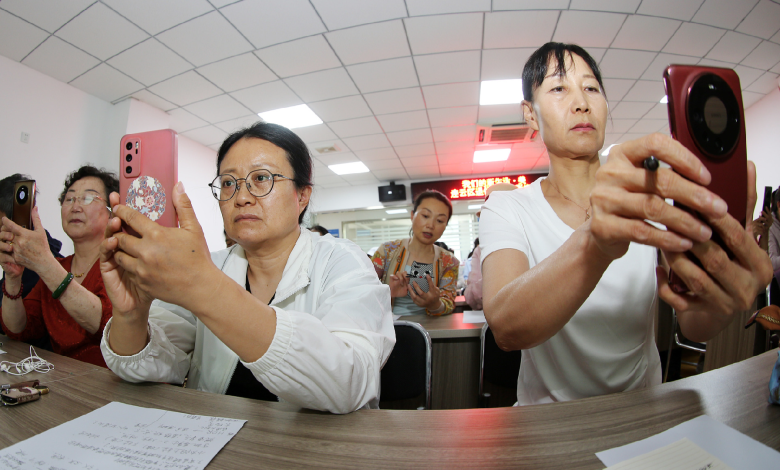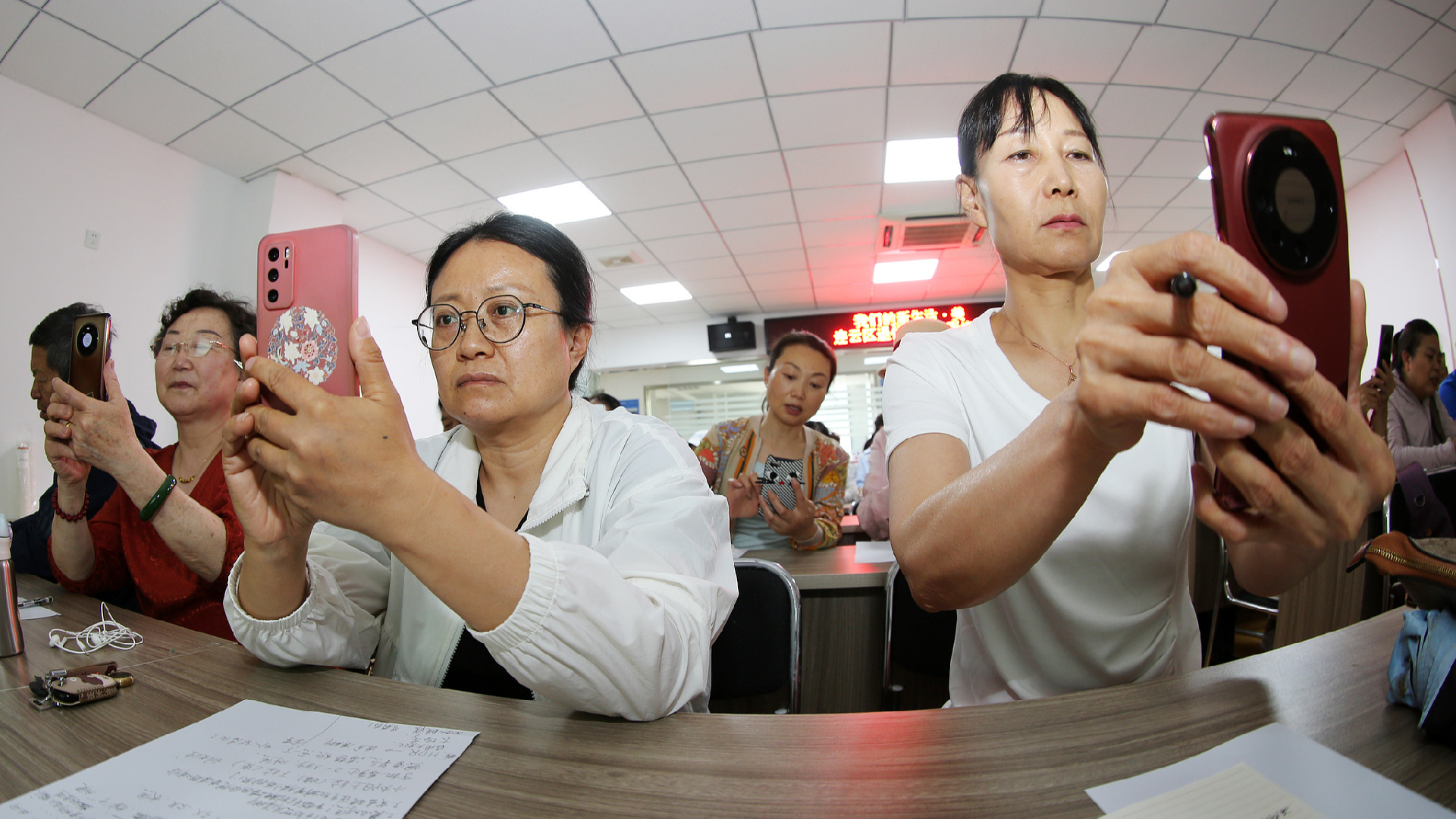Official explains why China is raising the statutory retirement age


<img src='https://news.cgtn.com/news/2024-09-13/Official-explains-why-China-is-raising-the-statutory-retirement-age-1wRJlPUn8cg/img/4328ff33840742ef84529fce652d5e29/4328ff33840742ef84529fce652d5e29.png' alt='Retirees learn how to take photographs via their phones, Lianyungang, east China's Jiangsu Province, May 29, 2024. /CFP'
China’s workforce has become increasingly diverse in their needs as the country’s economic, social and demographic structures have undergone significant changes, making it necessary to adjust the statutory retirement age, Wang Xiaoping, minister of human resources and social security, said on Friday.
It helps promote the development and utilization of human resources, Wang said at a press conference after China’s top legislature’s decision on Friday to gradually raise the country’s statutory retirement age.
Read more:
China’s top legislature approves gradual increase in retirement age
The average life expectancy in China has risen from around 40 years when the People’s Republic was just founded to the current 78.6 years. In the meantime, the average years of education for new entrants into the labor force have increased from 8 years at the beginning of the reform and opening-up period to 14 years today, pushing back the starting age for work, she noted.
Raising the statutory retirement age can help better harness the human resource dividend, Wang explained.
She said it also helps increase labor supply. In 2023, China’s population aged 60 and above reached 297 million, accounting for 21.1 percent of the total population; those aged 65 and above exceeded 217 million, making up 15.4 percent, showing a clear trend of aging. Meanwhile, the labor force population has been falling since 2012, with an average annual reduction of more than 3 million people.
The proportion of the working-age population in the total population is expected to decline further in the future, Wang said, adding that raising the statutory retirement age could slow down this trend and maintain the momentum and vitality for economic and social development.
It also helps meet the diverse needs of workers regarding work-life arrangements, Wang added.
As living standards continue to improve and working conditions advance, workers have different preferences regarding the timing of retirement, with some hoping for more flexibility and options, the official said.
Elderly care services
The Chinese government has pledged efforts to improve elderly care services.
The function and structure of elderly care institutions will be optimized to expand affordable and accessible care, Tang Chengpei, deputy minister of civil affairs, said at the press conference on Friday.
Tang added that enterprises are encouraged to participate in providing elderly care services, highlighting the need to alleviate the burden of elderly care on families through various measures.
He also said that the Ministry of Civil Affairs will play an active part in building an elderly people-friendly society.
Legislative process
Zhang Yong, deputy head of the Legislative Affairs Commission of the National People’s Congress (NPC) Standing Committee, explained the legislative process for the decision to raise retirement age at Friday’s presser.
Zhang said the State Council submitted a bill about the draft decision to the top legislature in early August. It was decided on August 27 to include the bill in the legislative agenda of the 11th session of the 14th NPC Standing Committee scheduled for mid-September.
On Tuesday, when the session opened, Wang from the Ministry of Human Resources and Social Security made explanatory remarks on the draft decision to the top legislature.
The lawmakers then held group deliberations. They deemed it necessary for the NPC Standing Committee to adopt such a decision to provide adequate legal basis for major reforms and to ensure the reform on retirement age is carried out in a steady and orderly manner, Zhang said.
The lawmakers said the draft is a feasible one as it has comprehensively considered various factors and fits the basic conditions and realities of the country. They broadly agreed to adopt the draft at the session, Zhang said.
The Constitution and Law Committee of the NPC held a meeting to review the opinions from group deliberations. The committee prepared a revised draft and a review report.
On Wednesday, the Council of Chairpersons of the NPC Standing Committee heard a briefing of the Constitution and Law Committee.
On Thursday, lawmakers held group deliberations to review the revised draft of the decision. It was adopted on Friday morning.
(With input from Xinhua)


